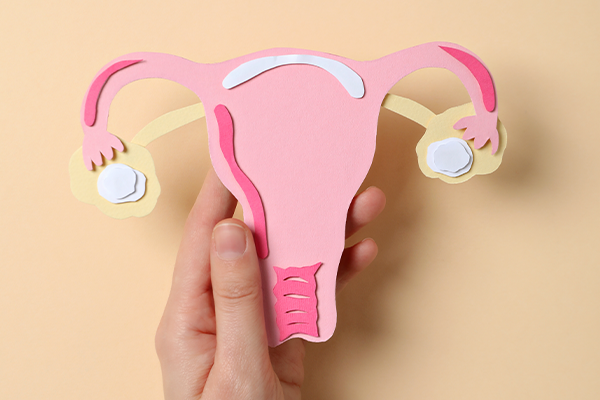
A Total Hysterectomy is a life-changing procedure that can address many health issues, such as uterine fibroids, endometriosis, or certain cancers. However, it is a significant surgery, and being informed about the process, options, and recovery is essential. This article provides a comprehensive guide to help you prepare, including the latest advancements, recovery insights, and emotional aspects of the journey.
Synopsis
- Understanding the Basics: What Is a Total Hysterectomy?
- Preparing for Surgery: What to Expect Pre-Op
- Innovations in Hysterectomy Techniques
- Recovery After a Full Hysterectomy
- Hormonal and Emotional Considerations Post-Surgery
- Lifestyle Changes After a Total Hysterectomy
- Conclusion: Why Choose Manipal Hospital, Kharadi?
Understanding the Basics: What Is a Total Hysterectomy?
A Total Hysterectomy involves the surgical removal of the uterus and cervix. It is different from a partial hysterectomy, which leaves the cervix intact, and a radical hysterectomy, which removes surrounding tissues along with the uterus and cervix.
Common Conditions Requiring Total Hysterectomy
|
Condition |
Description |
|
Uterine fibroids |
Non-cancerous growths causing pain or heavy bleeding |
|
Endometriosis |
Tissue similar to the uterine lining grows outside the uterus |
|
Uterine or cervical cancer |
Malignant tumors in the uterus or cervix |
|
Chronic pelvic pain |
Persistent pain not resolved by other treatments |
|
Uterine prolapse |
The uterus slips out of its normal position |
Knowing why your doctor recommends this surgery is vital to making an informed decision.
Preparing for Surgery: What to Expect Pre-Op
Preparation is key to ensuring a smooth surgical experience. Here are some essential steps:
Medical, Physical, and Emotional Preparation Checklist
|
Preparation Type |
Actions |
|
Medical Preparation |
Blood tests, imaging (ultrasounds or MRIs), sharing medical history |
|
Physical Preparation |
Healthy diet, light exercise, stopping smoking or alcohol |
|
Emotional Preparation |
Counselling, joining support groups, discussing concerns with family and friends |
Innovations in Hysterectomy Techniques
Modern surgical advancements have made hysterectomies safer and less invasive. These include:

1. Traditional Open Surgery
-
Involves a larger abdominal incision.
-
Longer recovery period but necessary for complicated cases.
2. Laparoscopic Hysterectomy (TLH Surgery)
-
Known as the TLH Procedure (Total Laparoscopic Hysterectomy), this involves small incisions in the abdomen through which a camera and instruments are inserted.
-
Minimally invasive and offers a faster recovery time.
3. Robotic-Assisted Surgery
-
Uses robotic arms controlled by a surgeon for extreme precision.
-
Reduced blood loss, smaller scars, and quicker healing.
Discuss with your doctor which approach is best for you, considering your medical condition and lifestyle.
Recovery After a Full Hysterectomy
Post-operative recovery is an essential part of your journey. Here’s what to expect:
1. Immediate Recovery
-
Hospital stay: 1-2 days for minimally invasive surgery; up to a week for open surgery.
-
Pain management: Medications will be prescribed to ease discomfort.
-
Mobility: Walking a few steps within 24 hours helps prevent blood clots.
2. Full Hysterectomy Recovery
-
For laparoscopic or robotic surgery, recovery typically takes 4-6 weeks.
-
Open surgery may require 6-8 weeks for full recovery.
-
Avoid heavy lifting, strenuous activity, and sexual intercourse until cleared by your doctor.
3. Long-Term Adjustments
-
Hormonal changes: If your ovaries are removed, you may experience menopause symptoms.
-
Emotional health: Some women report feeling a sense of loss. Counselling can help manage these emotions.
-
Lifestyle improvements: Many patients experience relief from pain and improved quality of life.
Hormonal and Emotional Considerations Post-Surgery
Hormonal Changes
If your ovaries are removed during the TLH Surgery, you will enter surgical menopause. Symptoms may include:
-
Hot flashes and night sweats
-
Mood swings and irritability
Managing Hormonal Changes
-
Hormone Replacement Therapy (HRT): Consult your doctor about the benefits and risks.
-
Lifestyle adjustments: Exercise, a healthy diet, and stress management can mitigate symptoms.
-
Alternative therapies: Acupuncture, yoga, and herbal supplements (after medical consultation).
Emotional Impact
Undergoing a Total Hysterectomy can be emotionally challenging. Consider:
-
Speaking openly about your feelings with loved ones.
-
Joining support groups to connect with others who have undergone the same surgery.
-
Practising mindfulness or seeking professional counselling for mental well-being.
Lifestyle Changes After a Total Hysterectomy
|
Aspect |
Recommendations |
|
Physical Activity |
Gradually reintroduce light activities; avoid heavy exercises until cleared by a doctor |
|
Diet and Nutrition |
Anti-inflammatory foods, hydration, consulting a nutritionist for hormonal adjustments |
|
Sexual Health |
Open communication with partner, use lubricants for dryness, consult a gynaecologist if needed |
Conclusion: Why Choose Manipal Hospital, Kharadi?
Undergoing a Total Hysterectomy is a major decision, but it doesn’t have to be overwhelming. By understanding the procedure, preparing effectively, and choosing the right healthcare provider, you can ensure the best possible outcome.
At Manipal Hospital, Kharadi, you’ll find a team of experienced gynaecologists and state-of-the-art facilities to guide you through every step of the process. Whether you’re considering a TLH Procedure or another type of hysterectomy, Manipal Hospital prioritizes your safety, comfort, and recovery. Trust their expertise to help you reclaim your health and well-being.
Read More: Understanding Heavy Menstrual Bleeding (Menorrhagia) - Symptoms and Causes
FAQ's
Recovery time depends on the type of surgery. Laparoscopic and robotic-assisted surgeries typically take 4-6 weeks, while open surgeries may require 6-8 weeks.
A TLH Procedure (Total Laparoscopic Hysterectomy) is minimally invasive, involving small incisions and quicker recovery, whereas open hysterectomy involves a larger incision and longer healing time.
Weight gain is not directly caused by the surgery but may result from hormonal changes or decreased activity during recovery. Maintaining a healthy lifestyle can help.
While generally safe, risks include bleeding, infection, or injury to surrounding organs. Discuss potential complications with your surgeon.
No, the removal of the uterus eliminates the ability to conceive. Consider this aspect carefully before proceeding if family planning is a concern.



















 8 Min Read
8 Min Read
















